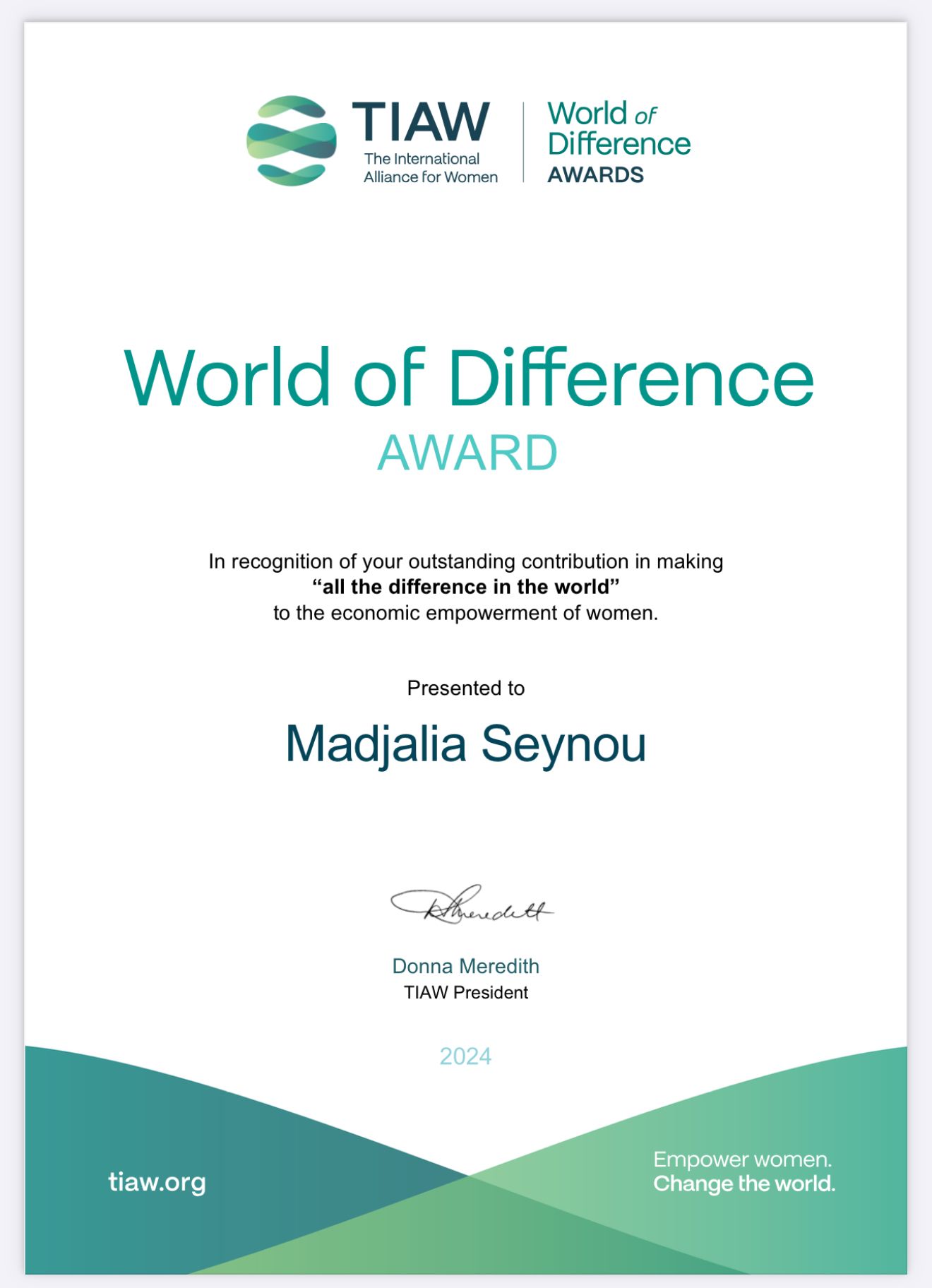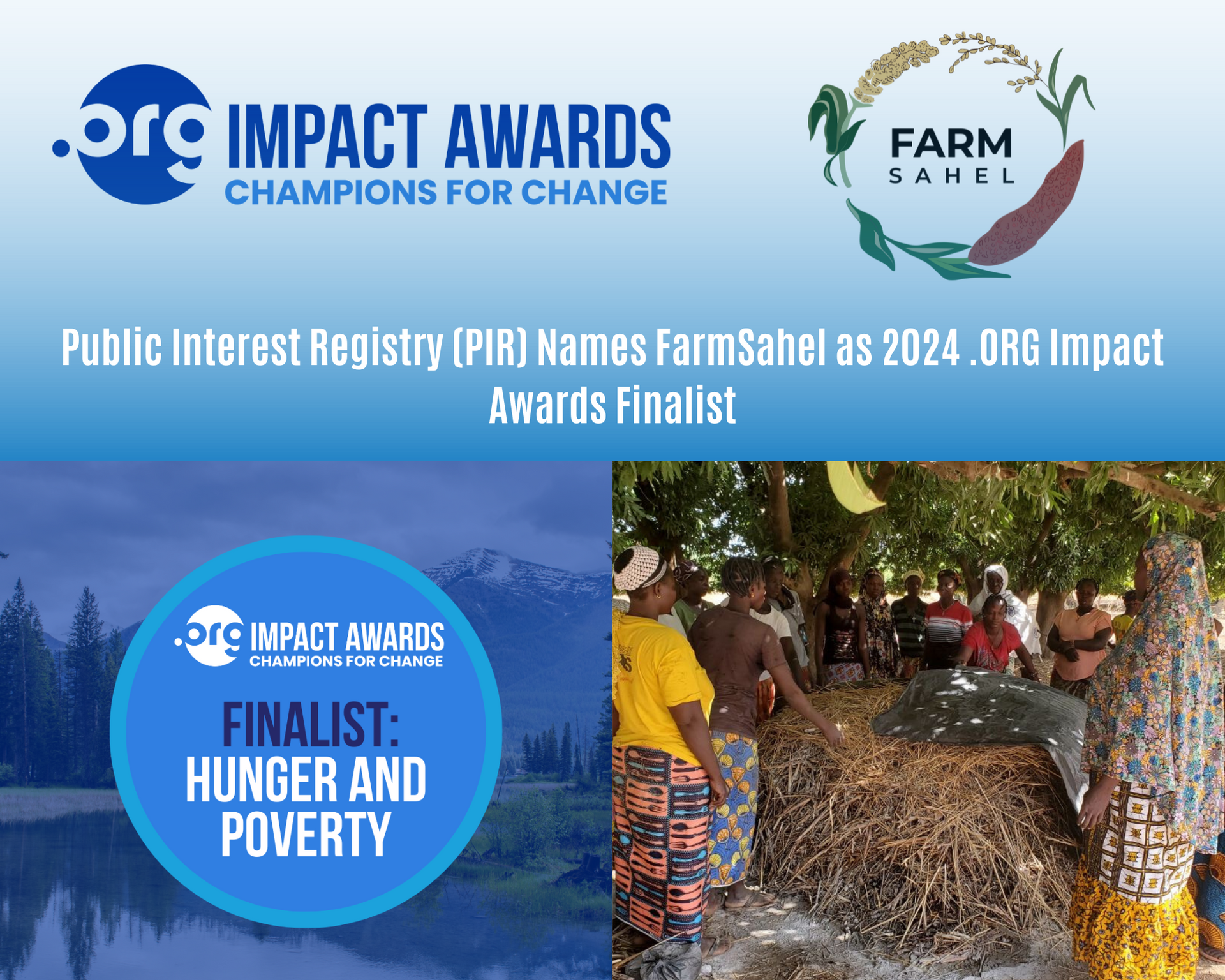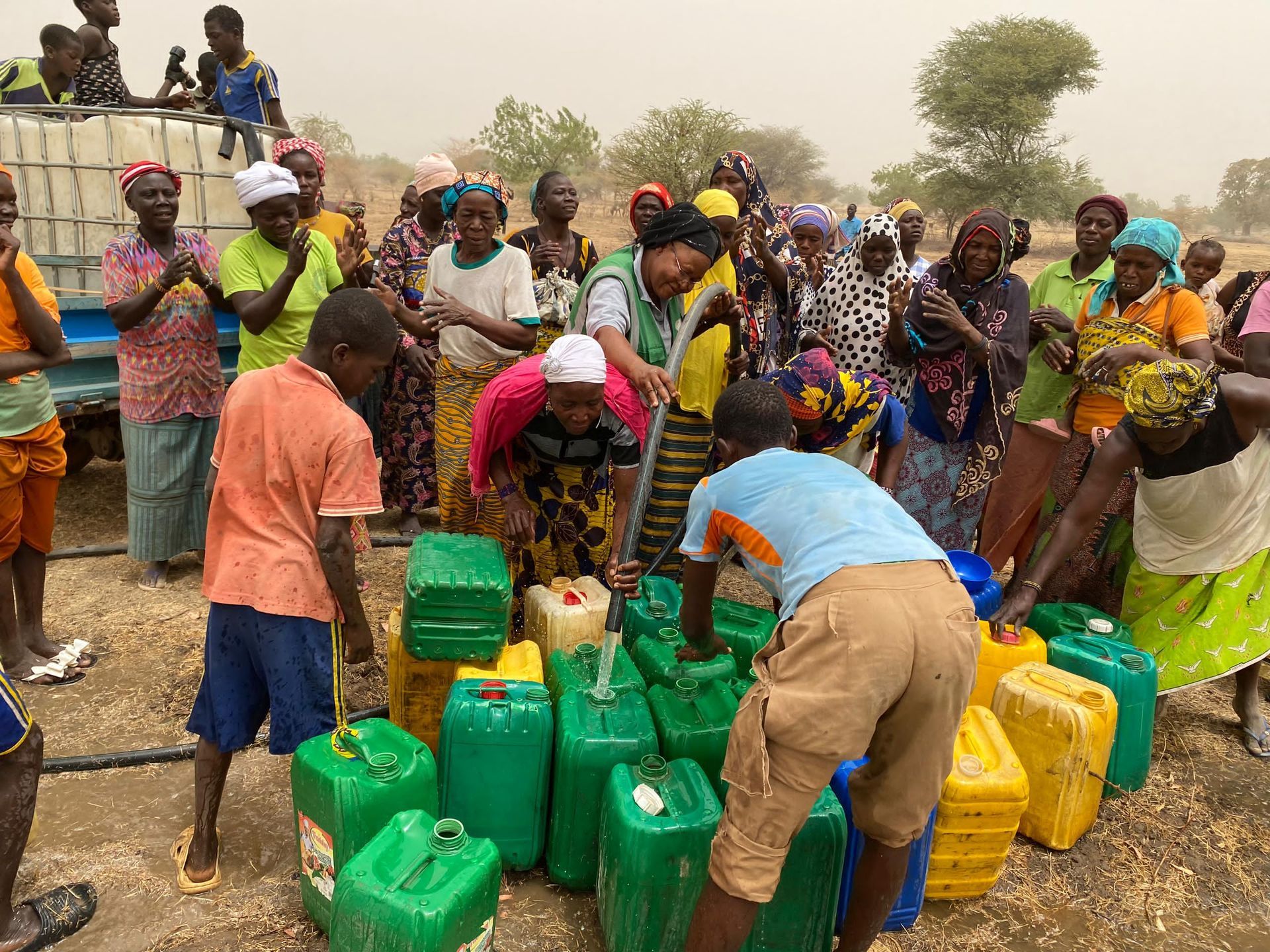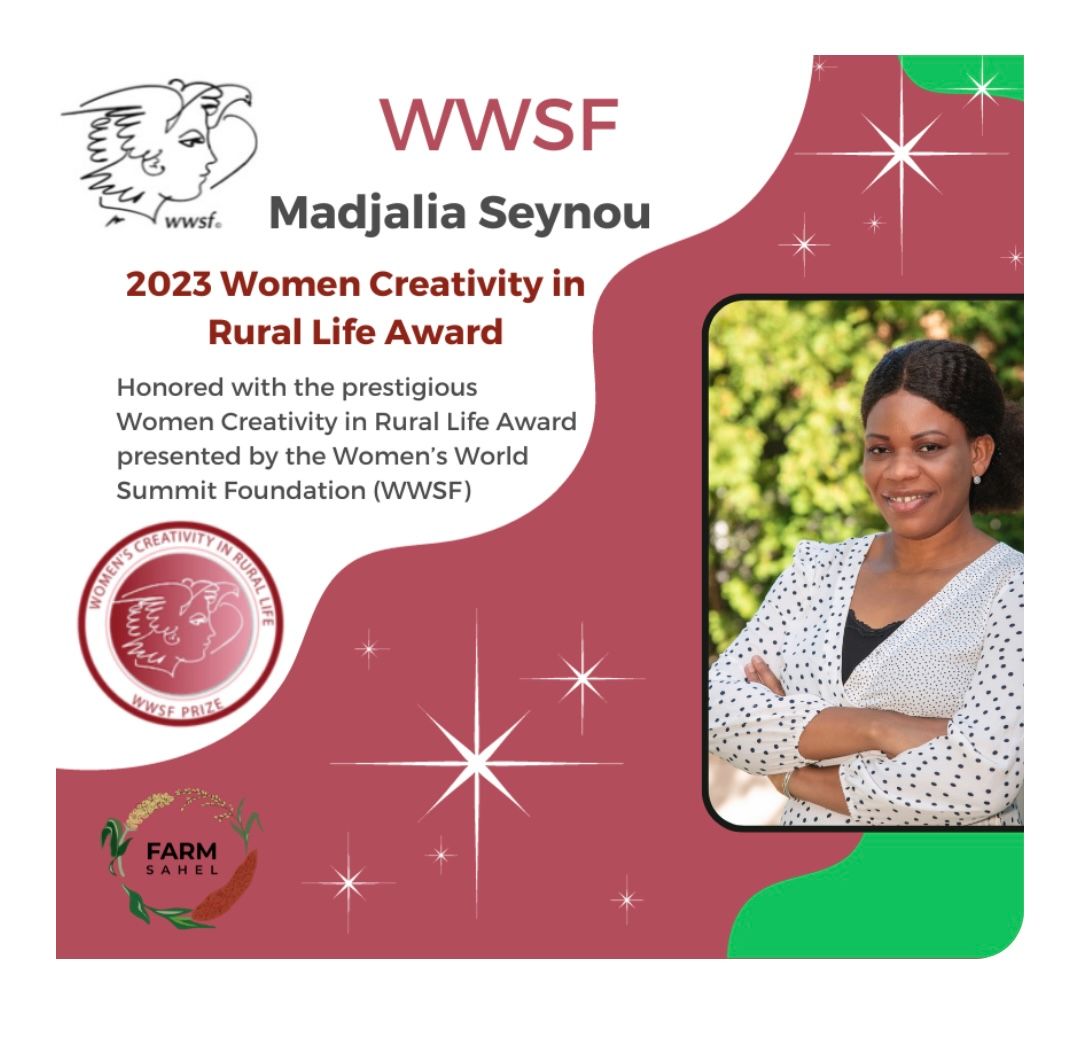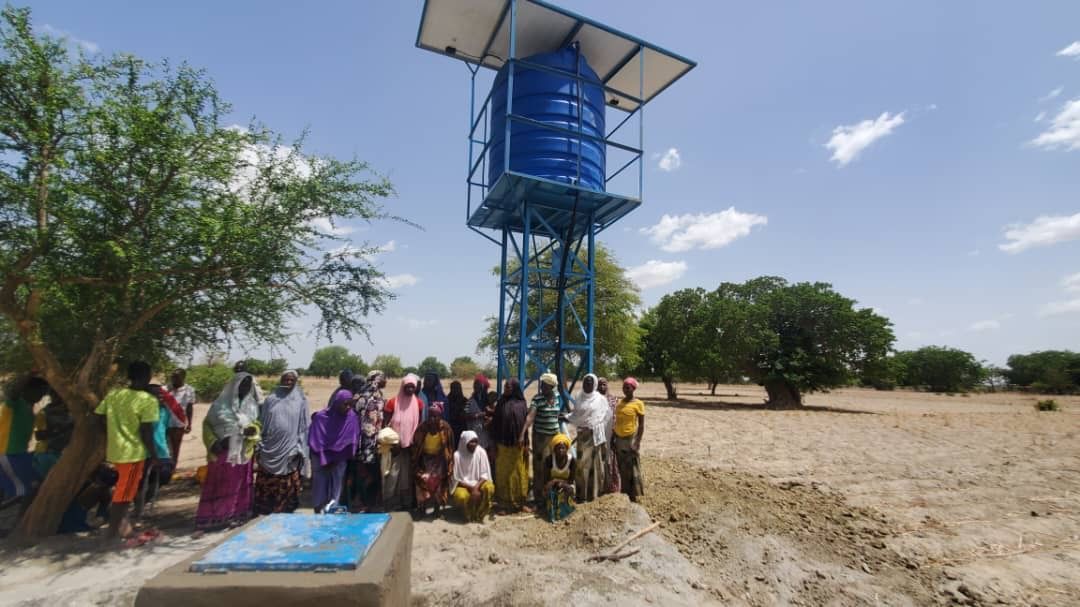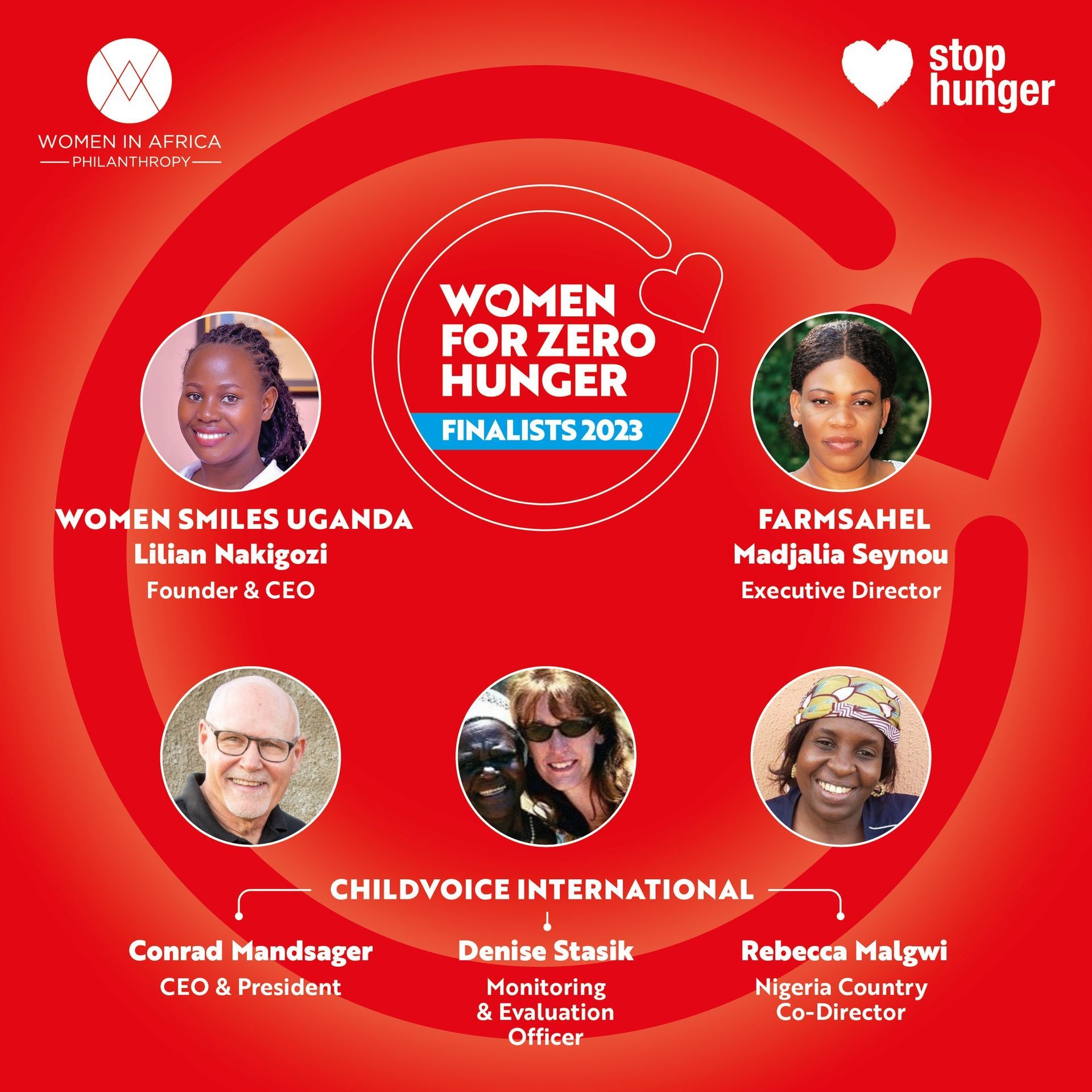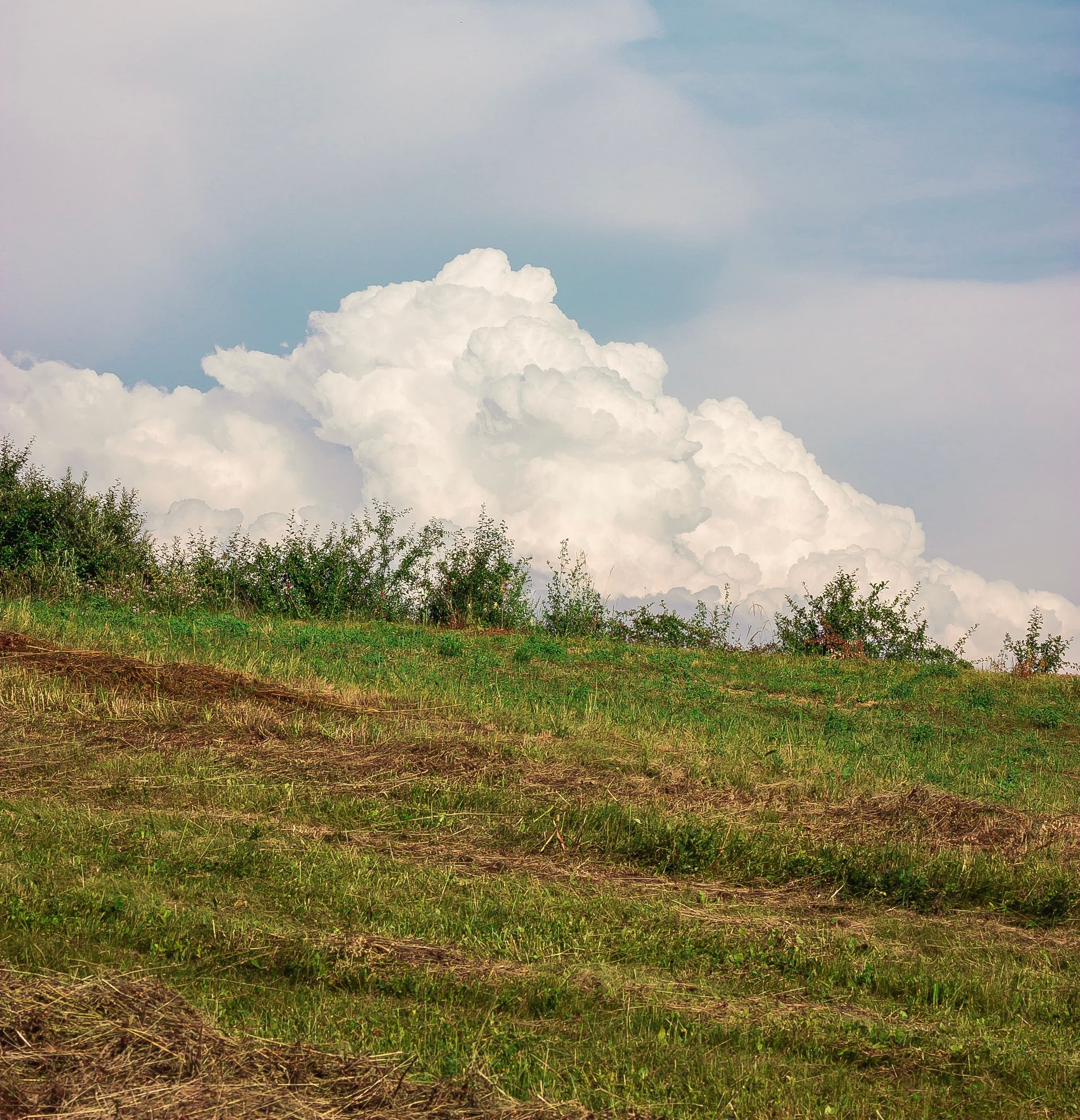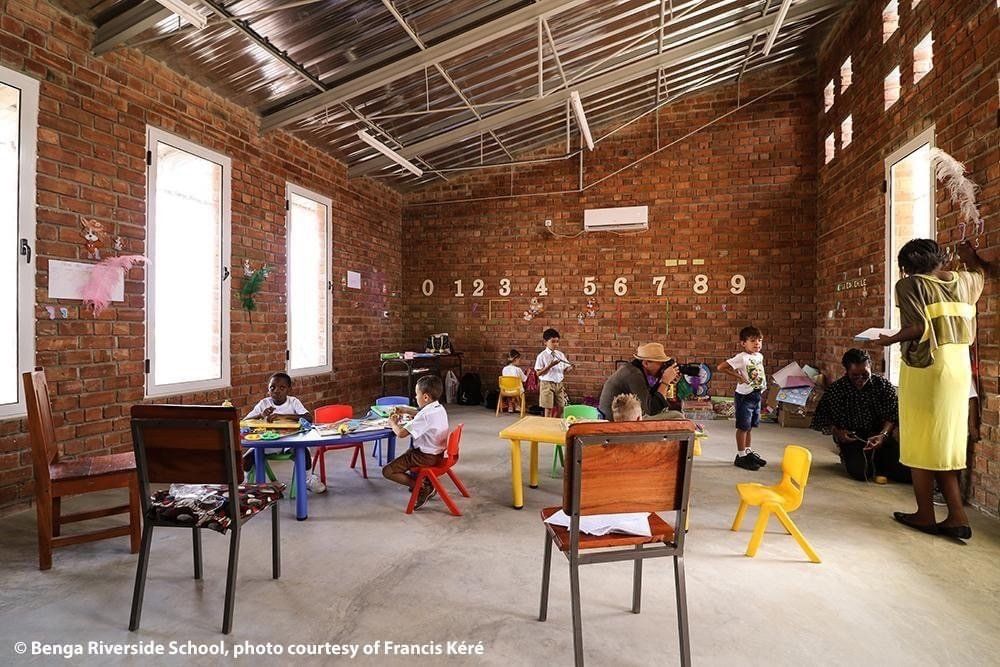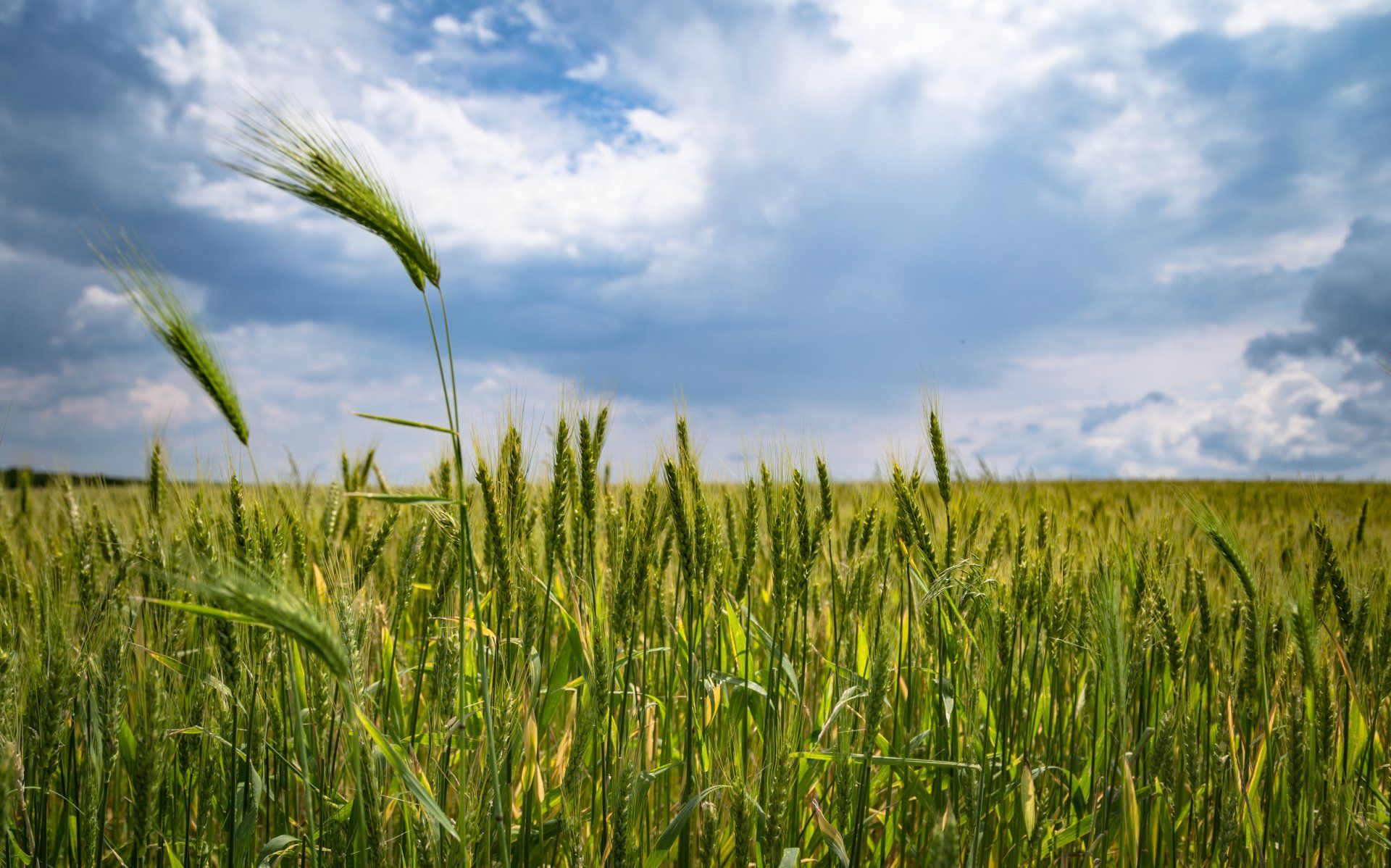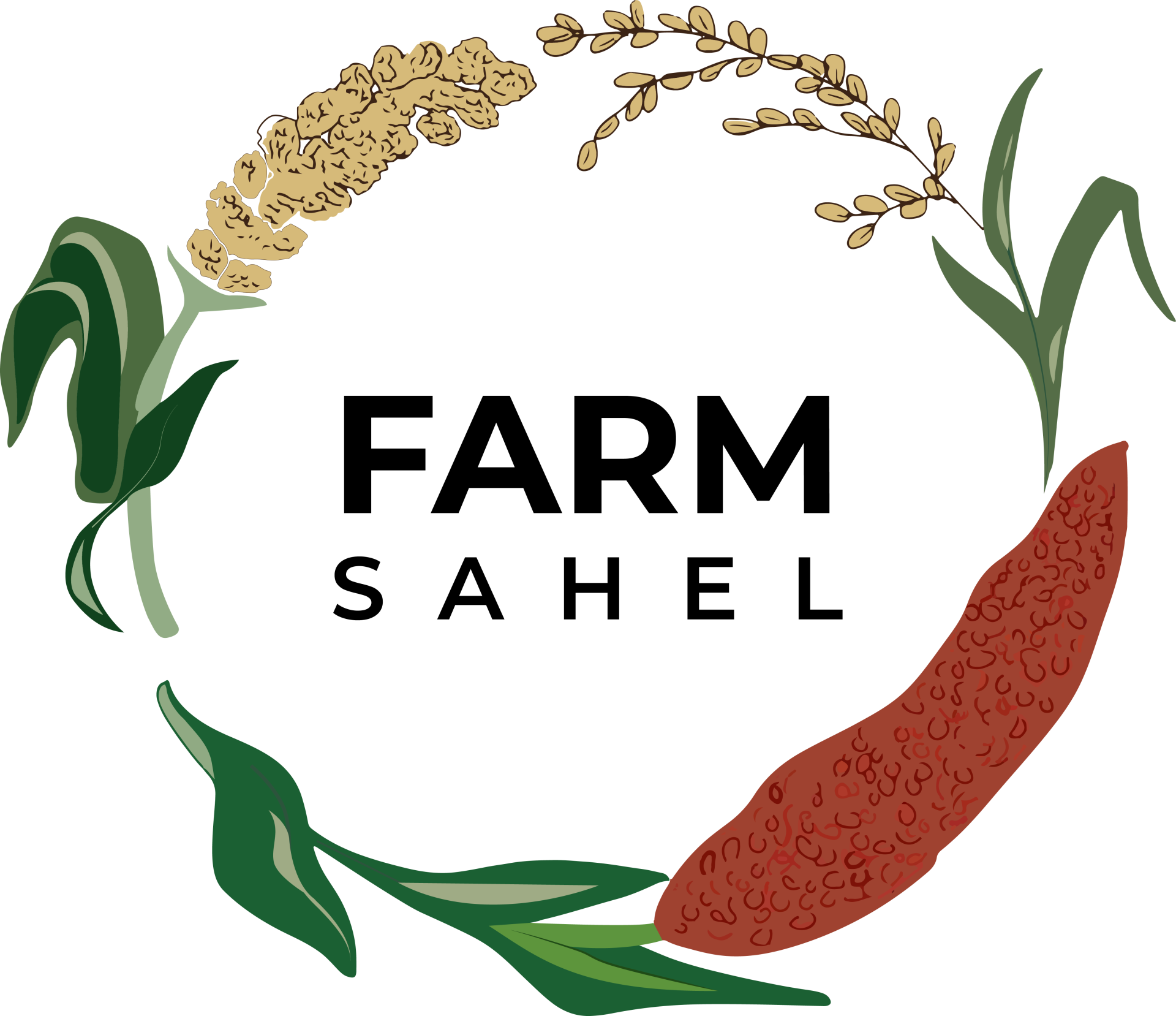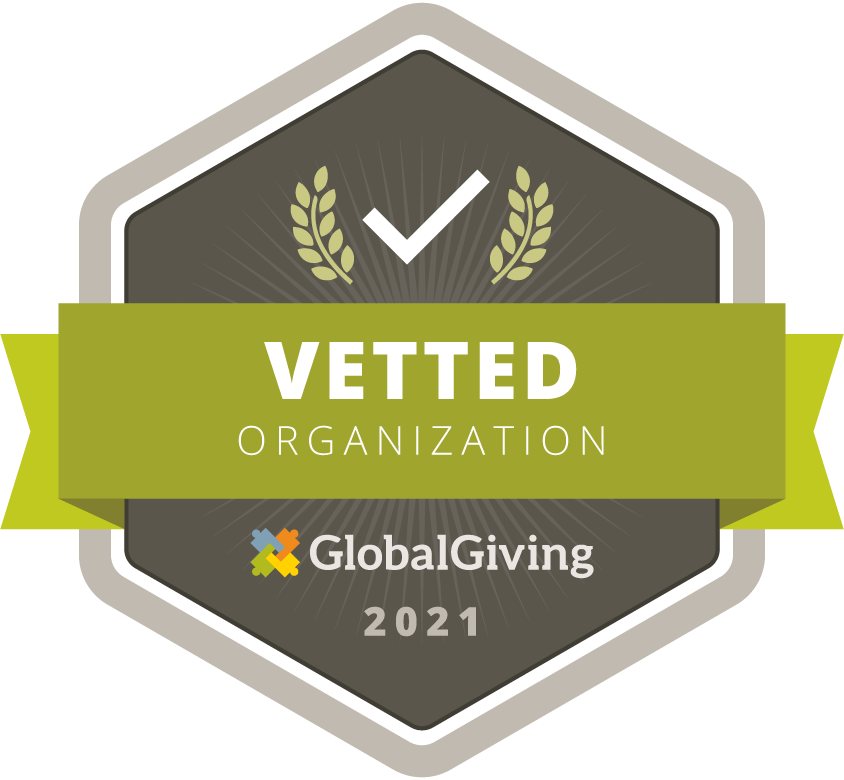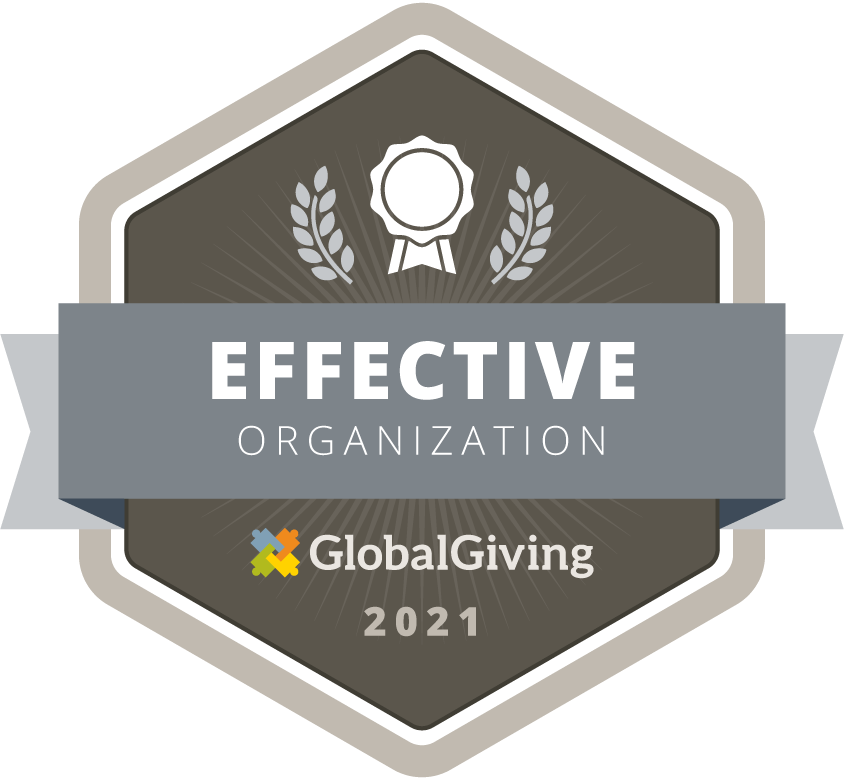Training on Solid and Liquid organic compost
Through our new program of Food Growth through Regenerative Cultivation, FarmSahel embarked on a four-day training initiative. FarmSahel focused on educating farmers on creating, using, and storing solid and liquid compost. Compost is necessary in the Sahel because the soil that rural African farmers depend on is deprived of nutrients and organic matter. When trying to plant in this soil, yields are oftentimes insufficient, with a high potential for plant disease. In an attempt to replenish nutrients, farmers would apply harsh fertilizers and pesticides. While this worked at first, over time, it quickly became unsustainable. Additionally, pesticides are expensive and contribute to soil deprivation. FarmSahel learned of the harsh side effects of fertilizer and devised a way to educate farmers on the importance of compost.
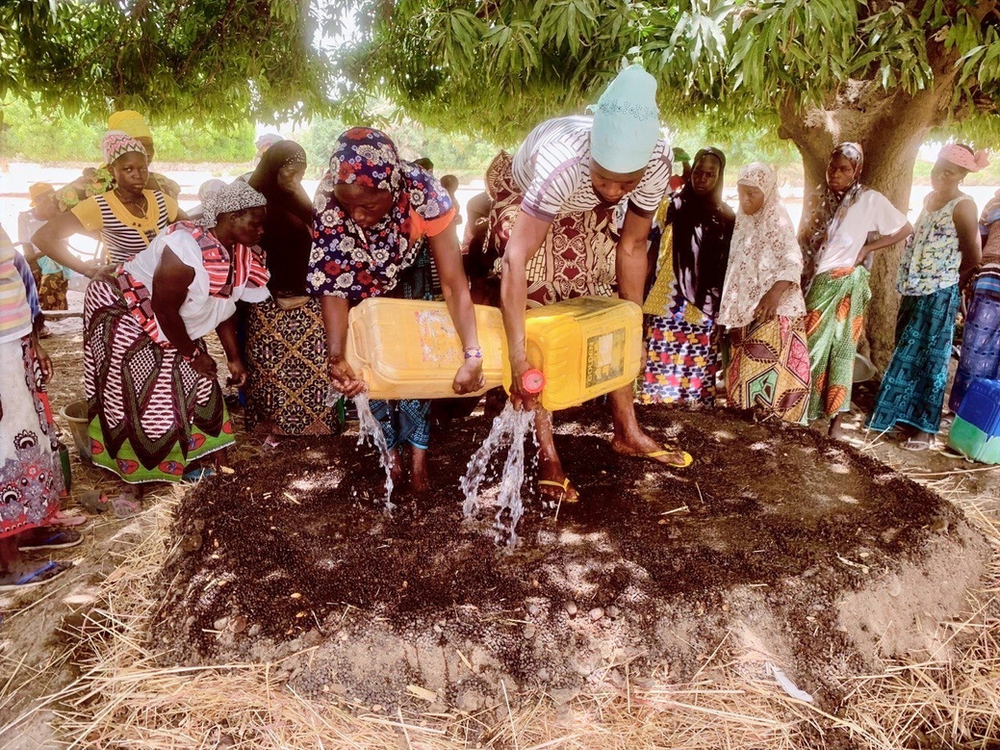
Farmers can easily make compost from organic materials such as manure, food waste, or grass clippings. Instead of a fertilizer spray that rain can easily wash away, compost is a type of soil that farmers would continuously add to the farm. Compost starts the cycle of soil enrichment by adding nutrients and microorganisms to the land. It is long-lasting, sustainable, and beneficial to the ecosystem.
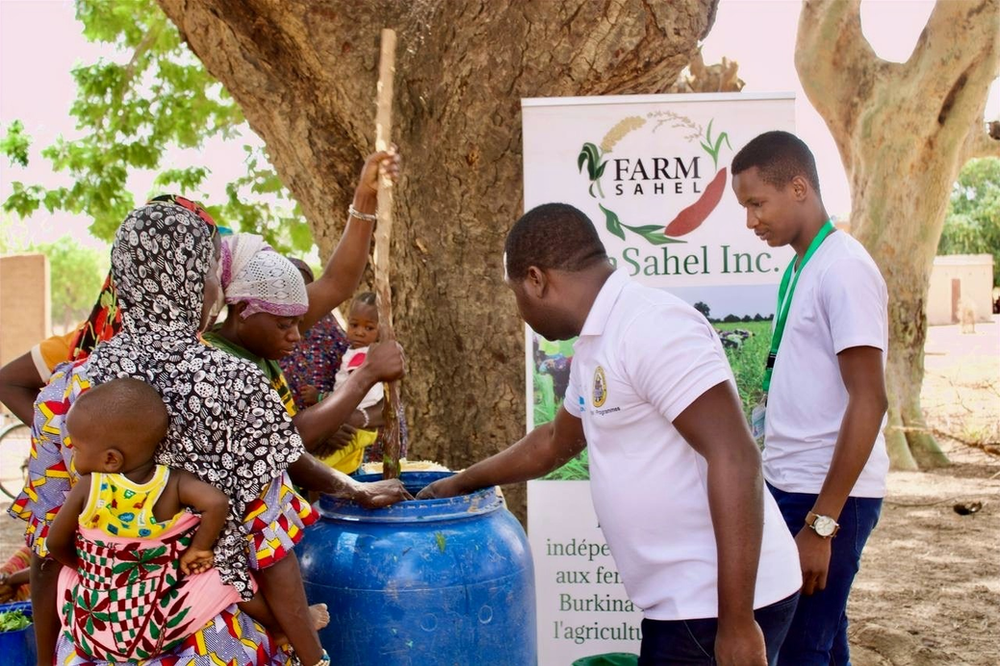
Any farmer can make compost, solid or liquid. Aerobic composting is the most commonly made and used compost. It is a type of solid compost that uses layers of organic material, moisture, and time to break down into a heavily rich soil additive. These layers include dried organic material such as dried leaves, nutrient-filled material like manure or food waste, and a cover such as grass clippings. Over time, these layers start to decompose. Then, with occasional turning and adding some water, farmers can start to have quality compost within a few months.
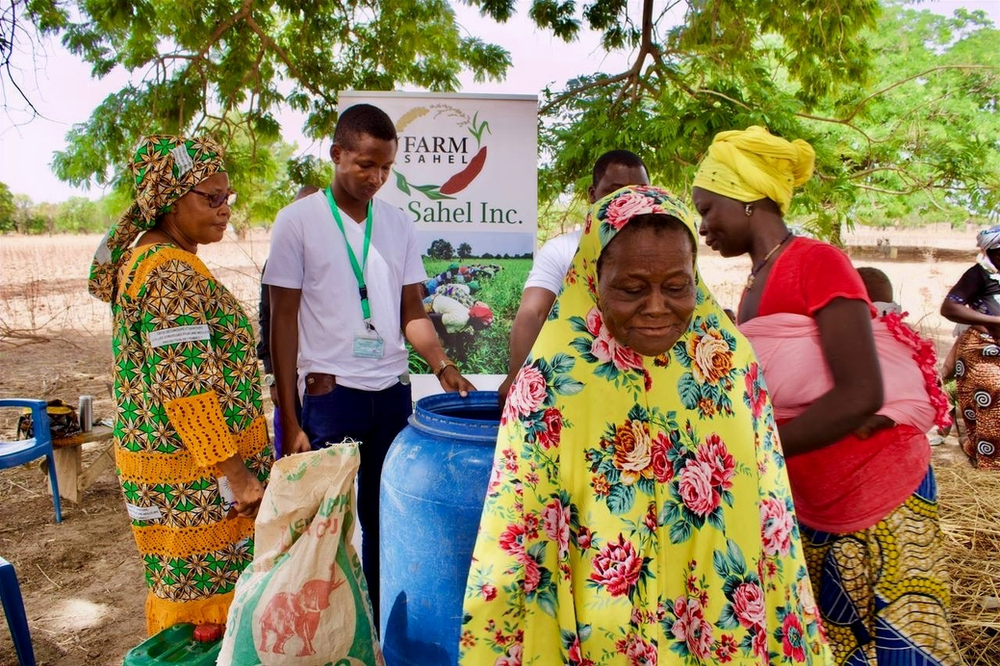
FarmSahel set out to the commune of Bindè in the villages of Dapelogo and Simbri. Its mission was simple; to restore land degraded by the abusive use of chemical fertilizers and synthetic pesticides. In this training, farmers learned how to produce, use, and conserve solid and liquid compost. FarmSahel’s main objectives for the training session was to reduce the use of chemical fertilizers, improve agricultural yields, instill a lifestyle change, and improve the living condition of women.
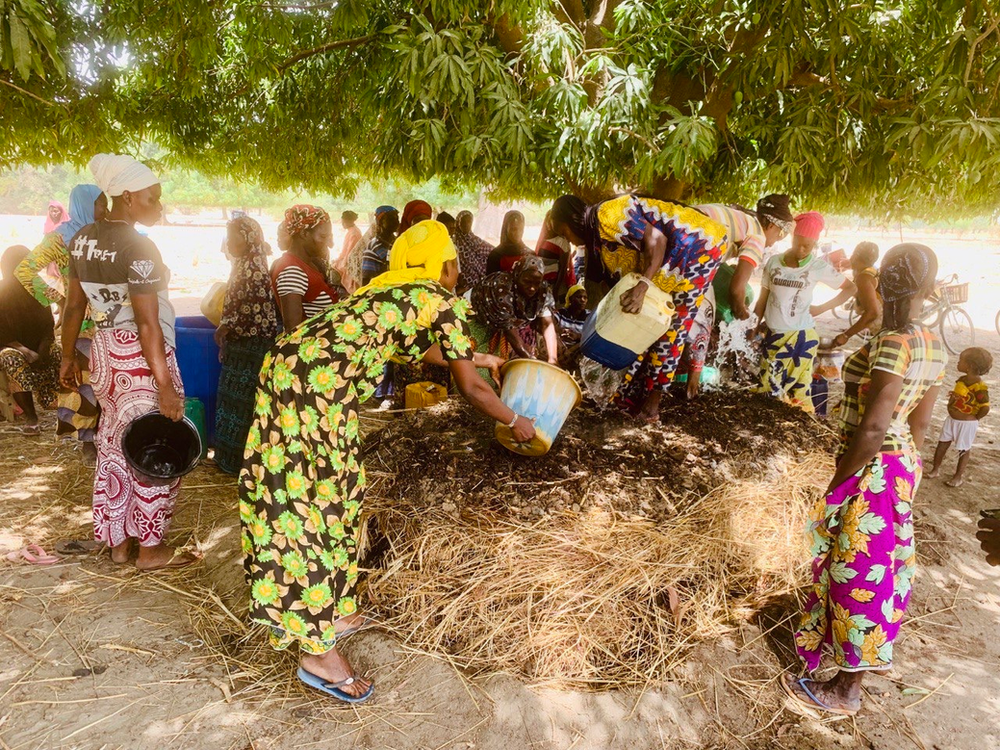
Managing compost is a tedious task requiring continuous attention to ensure the components break down into healthy microorganisms. It is a substantial change in the lives of these farmers, but the benefits of compost are undeniable. While FarmSahel prepared for about 60 women to attend the training session, we were overjoyed with 83 participants! Local authorities and community leaders were present as well, deepening the connection between FarmSahel and the region. With such a positive attendance, FarmSahel completed the objectives of reducing the use of chemical fertilizers, improving agricultural yields, instilling a change of behavior, and improving the living conditions of women.
Our training on compost and other sustainable and healthy farming techniques will continue with support from donations! With each donation, small or large, we can expand our training programs, provide women with better tools, and create an overall increase in quality of life for the rural women farmers of Burkina Faso.
Donate today to support our work.
